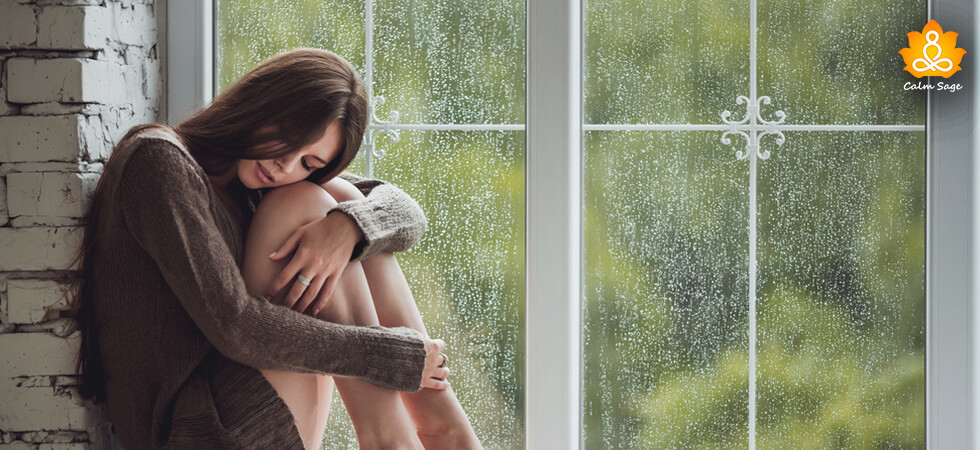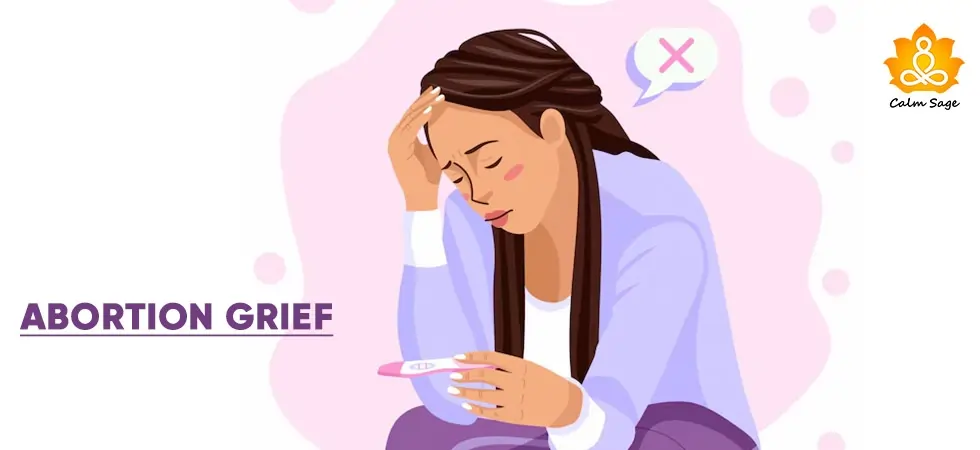Rainy Day Blues: Why Does Rain Make You Depressed (And How to Cope)

Ever since I was a child, I have loved rainy days. Never once have I felt anything other than comfort when it rained and even now, when it rains, it brings a sense of comfort and familiarity that no other season can bring. I have friends and family members who dislike rainy days because it makes them feel down and sad. “It brings a sense of gloom” is what they tell me. And it somehow rings true.
Rainy days often bring feelings of coziness and comfort to me, but for my loved ones, they are a reminder of melancholy, sadness, and dare I say, depression. While it may seem like a stretch to call rainy days equivalent to depression, there is a complex relationship between depression and weather.
Can I be as bold as to claim that rain causes depression? Of course not! At least, not directly. It can, however, be accurate enough to say that rainy days can contribute to low mood and energy, and even symptoms of seasonal depression.
Today, we’re exploring the link between depression and rain, the effects rain can have on our moods, what factors can cause depression on rainy days, and how you can cope with rainy day blues.
List of Contents
The Link Between Depression and Rain
In a 2020 study published in the Journal of Psychiatric Research, it was found that people were more likely to feel depression-like symptoms during cloudy weather. Before we look more into the connection and relationship between rain and depression, it’s important to understand that rain itself cannot directly cause depression.
Depression is a complex mental health condition that can be caused by various factors with seasonal changes being one of the many factors. Weather, including rainy days, can impact your mood and emotional well-being. Depression symptoms can include;
- Feelings of sadness and hopelessness
- Fatigue or lack of energy
- Feelings of guilt and worthlessness
- Changes in sleep patterns
- Thoughts of self-harm or suicide
Seasonal affective disorder (SAD) is one example of how weather patterns can impact our mental health. Seasonal affective disorder is a type of depressive disorder that typically occurs during the winter months when there is less natural sunlight. Rainy days, which often bring overcast skies and clouds, can worsen symptoms of SAD in people who are often diagnosed with the disorder.
A 2017 study found that a combination of weather-related factors can cause seasonal depression and can even reduce serotonin levels. While it’s more likely for people with SAD to feel depressed when it rains, this season can affect those without SAD too. Most people, during rainy days, feel a lack of motivation, energy, and joy.
Why Does Weather Affect Your Mood?
Rainy days can have a serious impact on your mood and even emotions. Here are some reasons why the weather affects your mood so much;
1. Reduced sunlight:
Rainy days often bring cloudy skies and a sense of gloom, leading to a decreased exposure to natural light. This can affect your body’s internal clock, affecting the natural production of serotonin and melatonin, the hormones that regulate mood and sleep patterns. Decreased sunlight can stir up feelings of sadness and low energy.
2. Isolation:
More often than not, when it rains, people tend to stay indoors. This can limit social interaction and outdoor activities. The loneliness or isolation caused by rainy days can lead to feelings of boredom, negatively affecting your mood and emotions.
3. Climate anxiety:
Climate change is another source of anxiety and can cause feelings of depression and sadness when you tend to think about how climate change is affecting the planet. Rainy days can trigger climate anxiety and make you ponder, negatively, about the state of the planet.
Other Factors That Cause Low Mood on a Rainy Day
Other factors that can cause low mood and affect your emotional state on rainy days can include;
1. Lack of outside activities: Rainy days can make you not want to step outdoors and the lack of outdoor activities and exercise, things that can lighten your mood and release feel-good hormones like endorphins, can affect your mood and make you feel depressed.
2. Seasonal affective disorder (SAD): If you’ve been diagnosed with SAD, then this disorder can also make you experience a low mood. Rainy days can even worsen the symptoms of depression with seasonal patterns if you’re diagnosed with one.
3. Passive or sedentary lifestyle: In a 2020 review, it was found that a sedentary lifestyle can contribute to feelings of depression. Passive activities like binge-watching can make you more susceptible to depression. So, if rain makes you depressed, then check your lifestyle habits. It might have something to do with that as well.
How to Cope with Depression on a Rainy Day?
You can’t control the weather any more than you can control natural disasters, but you can take steps to manage your mood during the days when clouds darken the skies and gloom reigns. Here are some ways you can cope with depression on rainy days;
1. Try Light Therapy
Consider using a light therapy box that mimics natural sunlight on days when it rains, especially if you’ve been diagnosed with seasonal affective disorder. Light therapy box treatment can help control and manage your mood when natural sunlight is reduced.
2. Stay Active
When it rains and you can’t go out, try to engage in indoor exercises or activities that promote your physical health and release endorphins. You can try yoga, dancing, home workouts, or other gentle movement exercises to stay active and keep your gloomy mood caused by the weather at bay.
3. Practice Relaxation Techniques
Meditation, deep breathing techniques, and progressive muscle relaxation (PMR) are just some examples of relaxation techniques that you can practice to relieve stress and anxiety and keep symptoms of depression at bay. These exercises can also improve your mood and boost your calm state.
4. Seek Support
If rainy days make you depressed, then you can also try to reach out for social support. Connect with your friends and loved ones through video calls or online support groups. This way can help you fight feelings of boredom, loneliness, and isolation that come with rainy days.
5. Stay Cozy
Another thing you can do when rain makes you depressed is to create an indoor space with warm lighting, comfy blankets, and soothing music or aromatherapy that can make you feel relaxed and calm. This action, also known as Hygge, can invoke feelings of homeliness, comfort, and well-being.
6. Sleep Well
When cloudy weather makes you depressed, try to prioritize sleep. You can feel more tired than usual when it rains, so make sure you keep and stick to a regular sleep schedule. Having a sleep routine when you wake up and sleep at the same time every day, despite the weather outside, can make you feel motivated and energized.
7. Seek Professional Help
If you keep feeling tired, unmotivated, and depressed despite changes in the weather, then consider talking to a professional. A professional can help diagnose your condition and help you find the right ways to treat your mood.
Wrapping Up…
While rain may not directly affect your mood and cause depression, the weather can impact your mood and worsen depression symptoms, especially if you’re already living with seasonal affective disorder (SAD). Knowing the connection between rain and depression, how the weather affects your mood so much, and how you can cope with depression on rainy days can help improve your overall health.
Know that seeking professional help is important if you’re still struggling with low mood, depressive symptoms, and seasonal mood changes. You are not alone in feeling low mood and depressed when it rains.
“Rainy days are like gentle reminders that even clouds can weep, but they make way for the sun to shine again.”
Over the years, I’ve learned to live my life following this quote. So, when you feel like the cloudy skies are persistent, know that one day the sun will shine and you’ll feel better. Just keep going and keep fighting!
I hope you found this article helpful. Let me know your thoughts and views on the connection between rain and depression and what you do when rainy days make you depressed in the comments below.
Take Care!




















